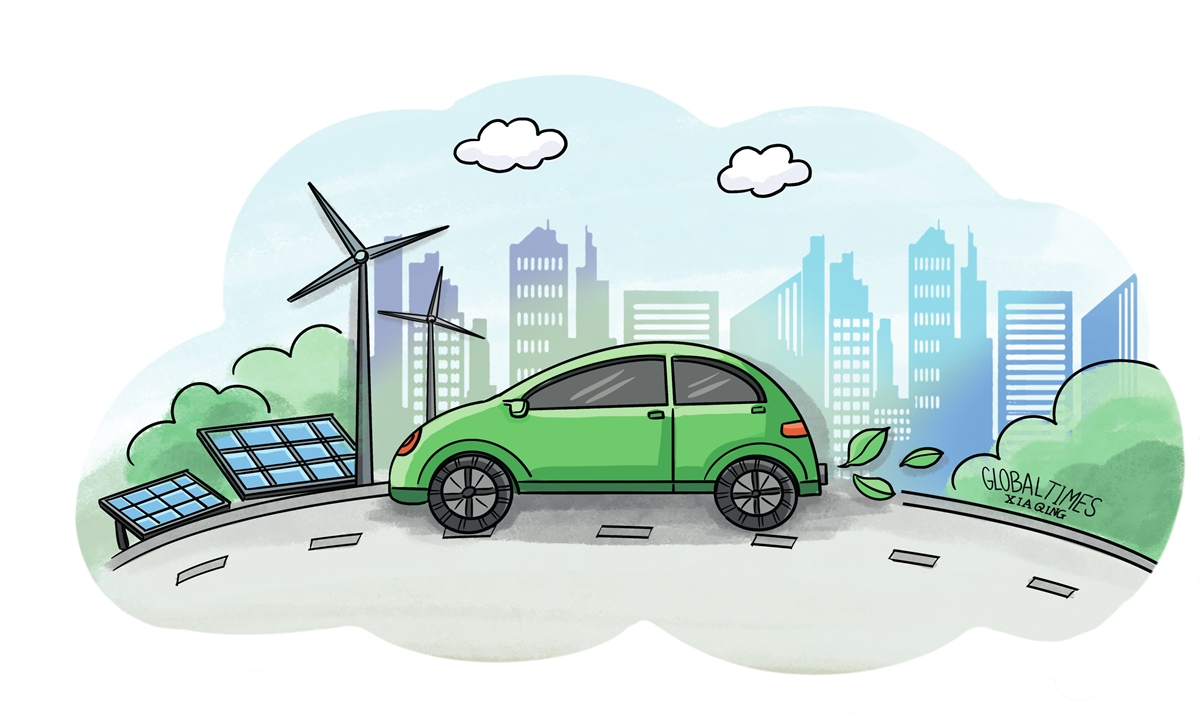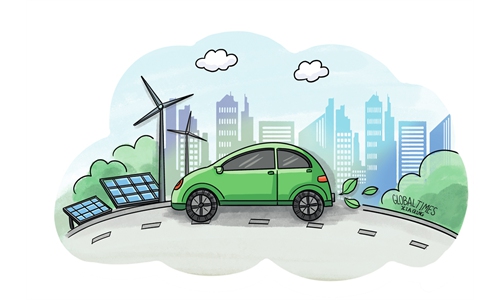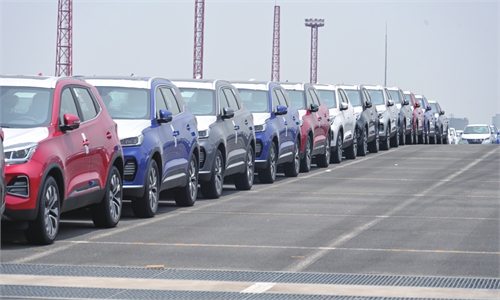
Illustration: Xia Qing/Global Times
As concerns over whether China's electric vehicle sector will be pressured by the rise of Western protectionism, there is an increasing urgency for China to be prepared for potential protectionist barriers and even sanctions imposed by the US and some other Western countries to maintain their edge in the new-energy vehicle (NEV) industrial chain.Analysts at Wall Street investment bank Jefferies said in a note on Monday that the "honeymoon stage" for electric vehicles in China is coming to an end, and next year will be "challenging" for NEVs in the world's largest auto market.
While the note only cited competition as a main reason for the end of the "honeymoon stage," it may, to a certain extent, serve as a reminder that it is increasingly possible that China's electric vehicle sector will face headwinds despite its current advantageous position in the global NEV market.
At present, China accounts for more than 50 percent of global sales of NEVs. According to statistics released by the China Association of Automobile Manufacturers, China's automobile exports reached 337,000 units in October, up 46 percent year-on-year, of which NEV exports totaled 109,000 units, up 81.2 percent year-on-year.
Meanwhile, the significant rise of Chinese NEV exports has been accompanied by a growing presence of Chinese electric vehicle makers across international market, with leading brands such as BYD and Nio trying to make inroads in Europe this year.
Inevitably, the rapid development of China's electric vehicle sector is arousing growing vigilance in the West, particularly in the US. The Biden administration has rolled out a series of measures to support US electric vehicle makers, including but not limited to generous subsidies to boost local production of electric vehicle batteries and the minerals used to make them.
In Europe, although it is an irreversible trend for the continent to transition to NEVs and there is close integration between European electric vehicle makers and the Chinese industrial chain, the EU is still likely to introduce subsidies for electric vehicle projects to protect its own industries from being undercut by the US protectionist measures. As Europe is now China's main export market for electric vehicles, it is conceivable how China's NEV industry will be hit amid the increasingly protectionist policy environment.
Over the past few years, China's domestic NEV industry has undergone rapid development, with sharp increases recorded in production capacity. While China is already the largest consumer market for NEVs, the domestic market alone is not enough to absorb all the output and overcapacity could follow if the overseas market becomes hard to access.
Moreover, given the US' suppression against China over advanced technologies and related products, the possibility of the US imposing new sanctions against China's NEV industry cannot be completely ruled out.
Under these circumstances, it is important for China to take precautions for potential Western sanctions and protectionist barriers so as to ensure the steady development of the Chinese NEV industry.
For starters, in the face of others' violation of principles of free and fair trade, China needs to carry out active coordination to reduce the impact on its own NEV industry and prepare plans to counter relevant measures if necessary.
Second, Chinese electric vehicle makers need to try their best to expand markets other than Europe and the US. China has the world's most complete industrial chain system, which will enable its companies to be competitive enough in the global market.
Third, in terms of technology, more efforts should be taken to push forward with technological innovation to move up the value chain and promote research and development based on different market conditions.
Finally, China's domestic market should also be prepared to support the future development of electric vehicle sector, with better supportive infrastructure facilities, such as power grid deployment and charging piles.
The bottom line is that despite growing risks and challenges overseas, the advantages of the Chinese NEV sector will remain and as long as continuous progress are made in core areas such as technological innovation, there is no reason to believe that the "honeymoon" is over just because some Western countries decide to make protectionist moves.



